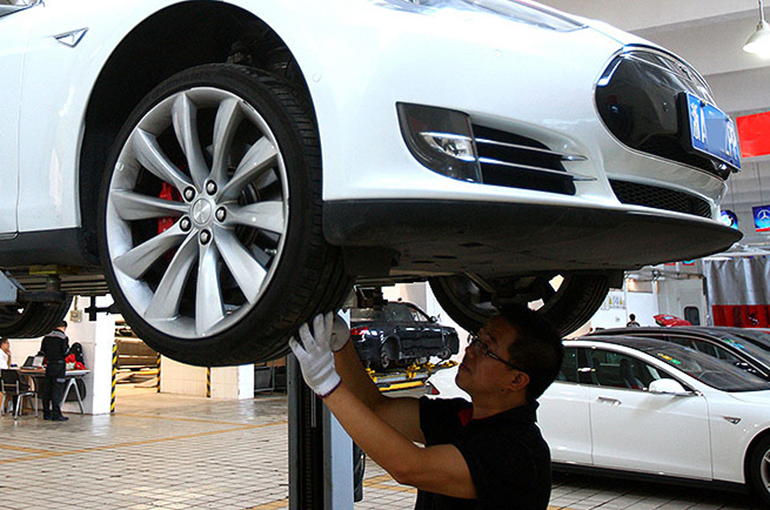 Chinese EV Buyers Are Left Adrift as Auto Startups Falter
Chinese EV Buyers Are Left Adrift as Auto Startups Falter(Yicai) April 22 -- As more Chinese electric vehicle startups run into financial difficulties amid stiff competition, their customers are being left in the lurch with little or no access to after-sales services. Since many of these firms use proprietary parts and software, it is nearly impossible to get the autos repaired at third-party garages. As a result, their resale value has plummeted.
Almost a hundred owners of Neta electric cars, whose founder admitted the company was in financial distress late last year, have posted complaints on product quality and service complaint websites, according to Yicai research. Some are reporting long delays in getting parts while others are saying they are not able to get their cars fixed at all.
One Neta owner told Yicai that he has to drive dozens of kilometers to get to a service center, as the 4S dealership where he bought the car has shut down. In fact, he is one of the lucky ones as in some cities there are no Neta dealerships left at all.
Another Neta owner said that he has been waiting over six months for a replacement reducer, after the existing one started making strange noises even though it was still within the warranty period. And there seems to be no resolution in sight. The same part is now selling at an-almost-50-percent markup on second-hand platforms compared to before the Shanghai-based company admitted its financial troubles.
Owners of other struggling new energy vehicle marques, such as WM Motor, Aiways, Hengchi and HiPhi, are also encountering similar challenges in getting their autos repaired.
One Hengchi owner in Wuhan, central Hubei province said that after his car started to play up, he took it to a regular repair shop, only to be told that the faulty component couldn’t even be disassembled without permission from the manufacturer, and that unauthorized repairs could be breaking the law.
Some frustrated owners have tried selling their vehicles to get out of the predicament, but once the news of a car company’s financial issues surfaces, the secondhand value of the autos plunges. Even then, it is hard to find a buyer as people are scared that it will be difficult to get the vehicle repaired. Some used car dealers are now refusing to accept autos from companies that have gone out of business.
Legal Risks
Many electric car startups are using custom-shaped parts in a bid to stand out with smart, personalized features, said a technician surnamed Long who specializes in repairing EVs and is based in Zhengzhou, central Henan province. This means most garages don’t stock these parts, and if the automaker is in trouble, they are even harder to find.
What is worse is that the internal systems of electric cars are not accessible to third-party mechanics, Long said. If mechanics attempt to bypass these restrictions, they could face legal risks.
As competition heats up, it’s inevitable that some EV startups will collapse, said Huang Jianhua, director of the Cardao Academy, which trains used car dealers. There needs to be an after-sales service system in place to protect customers’ rights once the sale is concluded.
The government should introduce regulations requiring automakers to set up an after-sales guarantee fund for each vehicle sold, Huang said. That way, even if a company goes bust, there will be funds available to pay for repairs and parts, so that owners are not left high and dry.
Editors: Tang Shihua, Kim Taylor